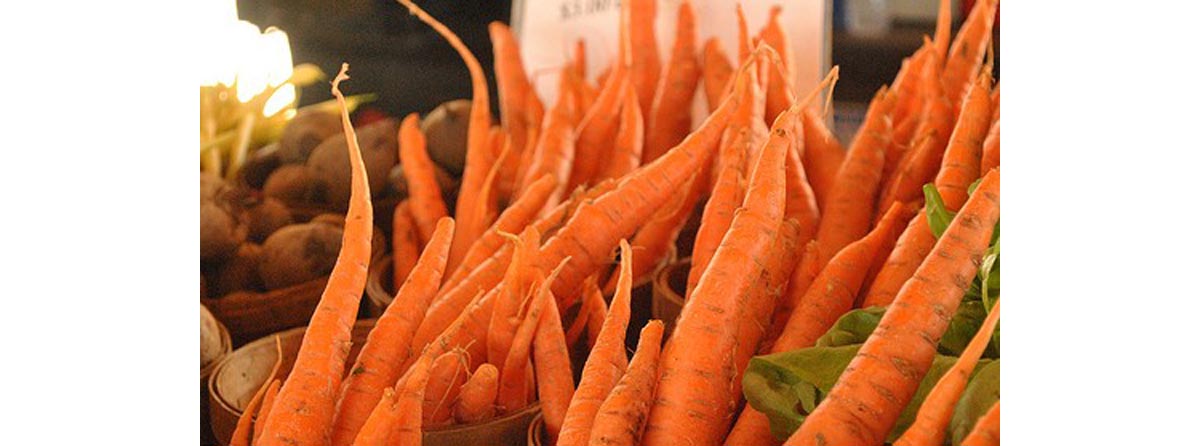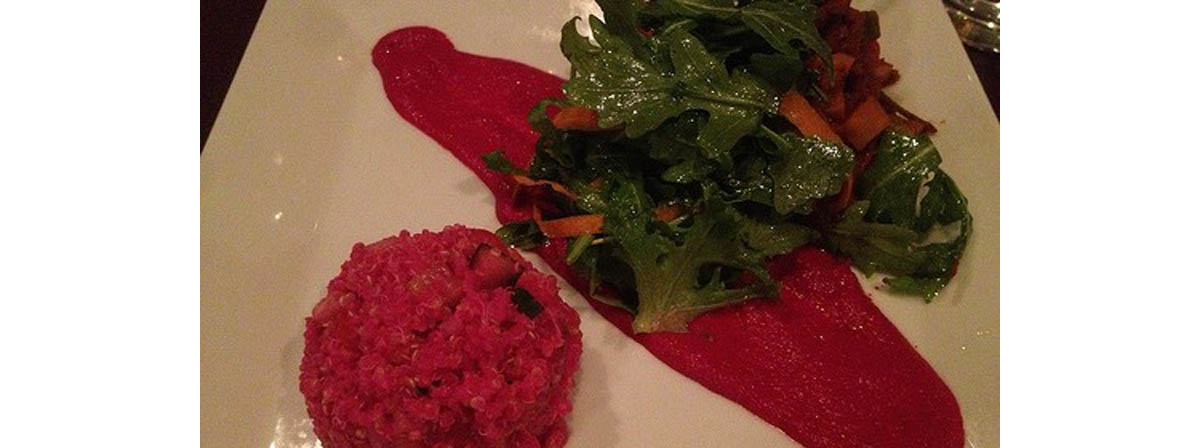Alternative health gurus are always giving us advice on how to use food to prevent lung cancer. One expert will tell us that what we really need to do is to take green coffee enemas. (I absolutely don't recommend this, by the way.)

Another expert will tell us that we need to avoid all red meat, animal fat, and margarine. I'd say that is a better idea, but not absolutely necessary. Yet another alternative health expert will tell smokers that they will lower their risk of an eventual diagnosis with lung cancer by becoming raw foods vegans.
I have a different suggestion, one that I have been making for several years and recently repeated on Steady Health Radio.
What Is the Evidence for Carrots Reducing the Risk of Lung Cancer?
Carrots really do reduce the risk of a particularly aggressive kind of lung cancer known as mesothelioma, when they are consumed in moderation.
In the 1990's, the Diet and Mesothelioma Task Force, comprised of researchers from Louisiana State University and the (US) National Cancer Institute, set out to identify nutritional factors that might protect shipyard workers, demoliton experts, roofers, glass plant workers, pipefitters, boilermakers, and sugar plantation workers from this particularly deadly form of lung cancer, which is most often triggered by long-term exposure to asbestos. They did a case control study of 58 people who had mesothelioma, compared to 58 people who had similar exposure to asbestos and similar tobacco use habits but had escaped the disease.
Of all the nutritional factors that seem to prevent mesothelioma lung cancer, none stands out more than the consumption of carrots. In the Louisiana study, eating just one serving of carrots per month was enough to lower the risk of mesothelioma by 30 to 80%. Eating carrots every week lowered the risk of mesothelioma, too.
Eating carrots more than seven times a month, however, canceled out the benefits of eating any carrots at all. And for every other kind of vegetable the researchers studied, including cabbage, spinach, broccoli, cauliflower, tomatoes and tomato juice, and cantaloupe, and also for the consumption of red meat, it was impossible to tell whether eating more of the food actually lowered the risk of mesothelioma or raised it.
A Carrot a Day Doesn't Keep the Oncologist Away
There is something about carrots that prevents mesothelioma as long as it is consumed in small doses. The beneficial carrot chemical isn't beta-carotene. The data showed it was possible that beta-carotene actually increased the risk of mesothelioma. And it wasn't vitamin A, either. In the study, the asbestos workers who had the lowest bloodstream concentrations of vitamin A had the lowest risk of mesothelioma.
Making Sense of Dietary Recommendations for Lung Cancer
Mesothelioma is not the only kind of lung cancer, so later researchers looked for a cancer protective effect of various foods against the form of the disease known as adenocarcinoma. Epidemiologists at the Aichi Cancer Center Research Institute in Nagoya, Japan, found that eating more cooked fish, but not eating more dried fish, sushi, or sashimi, decreased the risk of this form of lung cancer.

In the Japanese study, however, eating more carrots was found to be associated with an increase in the risk of lung cancer. Looking at the data closely, however, the Japanese scientists discovered that for reasons they could not explain, more people who ate carrots also smoked cigarettes, or more cigarette smokers ate carrots, they could not tell which.
Researchers in Finland took the Louisiana study to heart, and in the Alpha-Tocopherol, Beta-Carotene Cancer Prevention Study, they gave out alpha-tocopherol (vitamin E) and beta-carotene supplements to smokers and non-smokers alike. When to their horror the researchers learned that smokers taking the supplements were dying at higher rates than smokers who did not, the study was abruptly canceled.
Contradictory Findings in Research Studies Abound
The Aichi Cancer Center Research Study also found that miso soup consumption was associated with increased rates of squamous cell carcinoma and small cell lung cancer in men, but not in women. A previous study by one of the same authors, however, found that miso soup consumption was associated with higher rates of lung cancer in both men and women.
The study of lung cancer and fish consumption in Japan found that eating fish tended to protect against lung cancer, but a study of lung cancer and fish consumption in China found that eating fish tended to increase the risk of lung cancer, at least in men. Similarly contradictory findings appear in studies of consumption of dairy products, green vegetables, and cabbage family vegetables.
So if you smoke, and you don't want to get cancer, what is the bottom line from scientific research?
What Smokers Can Do That Actually Does Reduce the Risk of Lung Cancer
If you are a smoker and you don't want to get lung cancer, the most effective--but probably hardest--thing for you to do is to quit.
And if you have a history of working with asbestos, whether you smoke or not, eating that carrot a week really is a good idea.
Otherwise, however, it's actually important not to take too many antioxidant supplements if you don't quit smoking. It is as if the combination of smoking and supplemental antioxidants produces imbalances that actually favor the development of cancer. If you smoke, until you quit, you probably should not take beta-carotene, vitamin A, or vitamin E at all.
It won't hurt you to have that serving of carrots once a week, either. But if you are going to add a second vegetable to your diet while you are still smoking, there is good evidence that one of the best possible choices is beets. A study of 2821 people who had lung cancer and 2923 people who did not at the MD Anderson Cancer Center in Houston, Texas found that of all the chemical constituents of everyday diet, betaine, found in beets and quinoa, offered the greatest protection against lung cancer, an approximately 30% lowering in risk. Just a serving of beets a week or a serving of quinoa every other week offers the amount of betaine found to be protective.
There is no magic bullet from the vegetable kingdom for preventing cancer. Eating too much of any food seems to make the problem even worse. But these three simple, inexpensive vegetable foods, carrot, beet, and quinoa, are the best to include in your diet to prevent cancer if you can't quit or choose not to quit smoking. These foods can't cure lung cancer once you have it, but eating them in small amounts even after a lung cancer diagnosis would probably help.
- Muscat JE, Huncharek M. Dietary intake and the risk of malignant mesothelioma. Br J Cancer. 1996 May.73(9):1122-5
- Takezaki T, Hirose K, Inoue M, Hamajima N, Yatabe Y, Mitsudomi T, Sugiura T, Kuroishi T, Tajima K. Dietary factors and lung cancer risk in Japanese: with special reference to fish consumption and adenocarcinomas. Br J Cancer. 2001 May 4. 84(9):1199-206.
- Ying J, Rahbar MH, Hallman DM, Hernandez LM, Spitz MR, Forman MR, Gorlova OY. Associations between dietary intake of choline and betaine and lung cancer risk. PLoS One. 2013.8(2):e54561. doi: 10.1371/journal.pone.0054561. Epub 2013 Feb 1. PMID: 23383301.
- Photo courtesy of cookbookman17 by Flickr : www.flickr.com/photos/cookbookman/6093275016/
- Photo courtesy of Conrad and Peter by Flickr : www.flickr.com/photos/conradpeter/9670913535/

